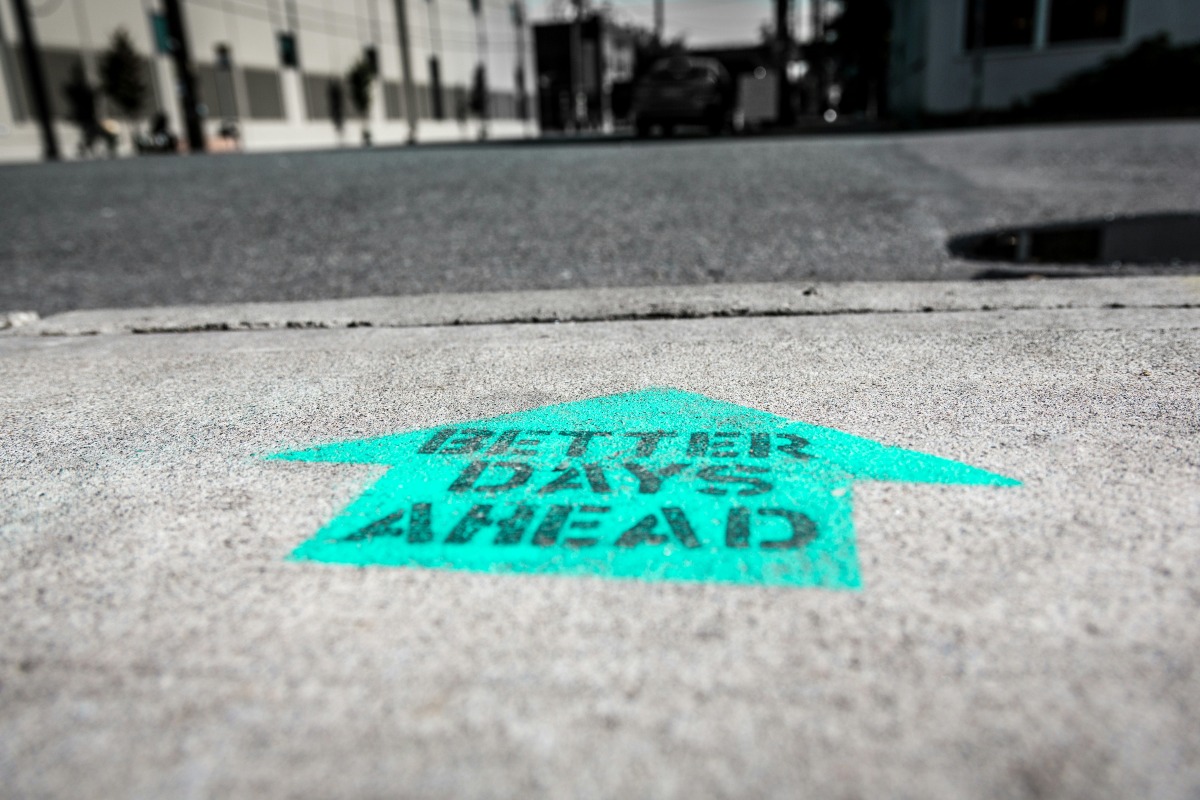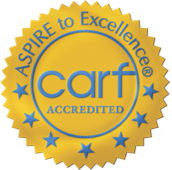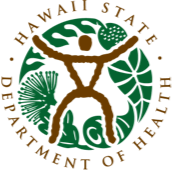Addiction is a devastating disease that impacts individuals, families, friends, and entire communities. There is nothing easy about overcoming the effects of the disease, and maintaining sober change takes constant effort. However, healing is always possible. Identifying and addressing challenges as early in recovery as possible before they escalate can promote the healthiest, most effective approach to sustainable healing. Hawaii Island Recovery champions early intervention strategies to promote lasting sobriety, both in identifying signs of addiction or new challenges and stresses that may arise at any stage of each person’s recovery journey.
What Is Early Intervention?
Early intervention in addiction recovery is a strategy that aims to address problems, challenges, or stresses in life before they have time to develop into larger problems. They can be plans to recognize early signs of challenges or relapse and focus on maintaining a healthy support system, communication, and other personalized coping strategies. By identifying and addressing challenges like signs of addiction or stress in each person’s sober journey early, new strategies can be put into place before these challenges can otherwise negatively affect daily life.
While this approach is effective in managing a wide array of challenges and addressing signs of addiction and relapse, it takes effort and education to act on these signs and provide efficient support. Professional support and education for family members and supports at home are instrumental in effectively intervening in early signs of challenges.
The Goals of Early Intervention for Lasting Sobriety
Early intervention most commonly takes the form of identifying signs of addiction early and getting help before addiction can more drastically impact daily life, mental health, emotional health, physical health, or even a person’s personal and professional life, encouraging effective detox and change. However, early intervention can also be instrumental for those already engaged in a dedicated treatment program by identifying other challenges like depression, anxiety, new sources of stress, or other challenges. Understanding the goals of early intervention for addressing addiction and promoting lasting sobriety can empower each person to create strategies to recognize needs early to prevent more self-destructive outcomes. These goals include:
- Preventing the escalation of personal challenges of mental health disorders, addiction, or self-destructive behavior
- Increasing awareness and mindfulness of a person’s physical, emotional, and mental well-being
- Reducing damage to the brain, body, emotional or spiritual health, and even relationships
- Informing new coping strategies
- Encouraging community engagement and support
Meanwhile, identifying and addressing the challenges of addiction early can lead to the most effective approach to change, increasing the chances of success in navigating these challenges while building resilience in the future.
Early intervention can also inform changing strategies throughout any stage of treatment. Each person will have their own best approach to a sustainable, sober life. However, developing effective early intervention skills can empower this personalized care, identifying areas of personal needs as well as informing new coping strategies and identifying techniques that may not be as effective, prompting each person to take control of their recovery journey at any stage of treatment and healing.
Addiction is not a disease that has a traditional “cure.” Being cognizant of these challenges and working with professionals like those at Hawaii Island Recovery to develop early intervention strategies can help alleviate the intensity or frequency of stress or symptoms of mental health disorders, leading to a more sustainable and healthy recovery journey. Addiction recovery is hard, but it can also be incredibly rewarding, ushering in new chapters of life and change.
The Benefits of Early Intervention
Recognizing and acting early on signs of stresses and challenges related to addiction can lead to a more effective approach to healing. For many, it can increase the chances of a successful recovery, helping those overcoming addiction increase their chances of maintaining sober goals and daily life while preventing relapse. It can also support each person as they successfully graduate and transition through various stages of treatment, from detox and residential care to ongoing outpatient support and beyond.
Lessened severity of addiction and mental health symptoms can also lead to a positive impact on a person’s daily life, with more manageable symptoms being easier to overcome and less inhibiting when practicing new life skills and pursuing personal goals or self-care outlets. While challenges like urges, cravings, and stress are still present, lessening these symptoms can empower those in recovery to overcome these challenges and maintain their hard-earned sobriety more effectively.
Signs That Early Intervention May Be Necessary
Knowing the signs to look for is the first key step in effectively employing early intervention strategies. Working with professionals like those at Hawaii Island Recovery can familiarize a person with the signs and symptoms of change in a person’s recovery journey and is the first step toward addressing these challenges before they develop into something greater. Some common signs that a person may be experiencing new stresses or challenges throughout any stage of their sober journey include:
- Increased urges and cravings
- Preoccupation with addictive substances or romanticizing past use, even if they do not have a plan to reengage yet
- Increase in feelings of anxiety, depression, or mood swings
- Social withdrawal or a sudden increase in self-isolating behaviors
- Decrease in personal hygiene routines or ability to accomplish daily responsibilities
- Revisiting places or people who may have been associated with past substance use
- Overconfidence in a person’s sober coping strategies, or believing sentiments like “just one drink won’t hurt”
- Missing or skipping treatment programs, group meetings, or other forms of sober support
- Difficulty sleeping
Stress is a common part of daily life. However, major stresses can lead to decreased emotional resilience throughout a person’s sober journey. Stress in personal relationships, in the workplace, or as a result of major life events like moving or interpersonal conflict can all affect a person’s thoughts and resilience to maintain their hard-earned sobriety. Noticing any of these signs at any stage of recovery can inform the effective use of early intervention strategies to identify and manage these sources of stress, doubt, or the ongoing effects of mental health disorders in daily life.
Likewise, continuing to make updates to each person’s treatment plan to address developing needs and goals in sobriety is part of successful, lasting sobriety. It takes persistent hard work and effort from both individuals and entire recovery communities and families for a sustainable and effective sober life.
Effective Early Intervention Strategies for Lasting Sobriety
Just because a person has graduated from a treatment program, either at Hawaii Island Recovery or at a local treatment facility, does not mean that their journey with addiction and recovery is over. Likewise, knowing what signs to look for that could indicate a change in stress levels or attitudes about a person’s sobriety is just the first step in preventing these challenges from affecting a person’s sober lifestyle. Working with professionals, family members, and peers in recovery can help each person find the collection of early intervention strategies that can best support their sustained sober change.
Stay Connected
Friends, family, professionals, and peers are all part of each person’s recovery journey. While overcoming a disease like addiction can feel very isolating, the effects of the disease are never truly confined to a single person. Effective recovery is equally a communal effort, and using these effective support networks can be a crucial resource for enacting effective early intervention strategies.
Staying connected with others can provide new perspectives on a person’s daily life, including helping identify signs of stress, challenges, or changes in behaviors that may indicate a need for change to prioritize sobriety in daily life. Daily phone calls, text messages, emails, or sitting down for a meal with supports and family members each day can be a great strategy for identifying changes in behavior or attitudes. Family members and support groups can also create a safe space to voice these challenges or feelings without feeling judged, empowering those in recovery to be advocates for their own continued healing.
For others, regularly attending continued recovery meetings is a great way to stay connected and ingrained in a person’s local recovery community. Even if a person feels they have “beat” addiction, continuing to go to these meetings can provide new outlets, ideas, and a community to focus on personal needs and goals in sobriety, continuing to reinforce personal mantras, convictions, and sober milestones. Looking into local group meetings or exploring telehealth options to connect with a professional treatment facility across greater distances can all be ways of staying connected.
Self Check-Ins and Journaling
Likewise, taking stock of oneself is also an important skill for those continuing to navigate their daily sober lives. Using self-check-ins and mindfulness practices as a part of a daily routine can be a great way of starting the day with a better understanding of oneself, empowering those in recovery to recognize when things may feel different from day to day.
Breathing strategies in the morning, journaling in the evening, and various other mindfulness strategies throughout the day can all help to ensure that a person stays in tune with their emotional, mental, physical, and spiritual well-being in sobriety. Journals can also provide not just an effective outlet to process and expel sources of stress but can also be a resource to recognize potential patterns in daily life that may lead to unnecessary challenges, informing other early intervention strategies. Noticing that certain times of day, places, or people are tied to increased stress or attitude changes can be invaluable information for acting and prioritizing continued sobriety.
Keep a Routine
Effective and healthy daily routines are a crucial part of sustainable sobriety. Having a daily routine can ensure that each person feels in control of their daily life, managing their energy and expectations while tending to important tasks. However, routines can also be important for helping to recognize when certain aspects of daily life may be compromised due to stress or other challenging feelings. Noticing a person is having difficulty falling asleep or losing their set-aside time for self-care can all be indications that early intervention action should be taken before underlying feelings of stress, anxiety, or depression can continue to build, empowering a person to act before these challenges affect their sobriety, relationships, or overall well-being.
Focus On Gratitude
Gratitude can be a powerful thing in addiction recovery. Addiction is a devastating disease, and it can be traumatic for individuals and entire families. With the constant effort and hard work it takes to manage sobriety, navigate urges and cravings, and pursue sober milestones, taking time to focus on gratitude can be challenging. However, it can also be a crucial strategy for contextualizing these challenges.
Focusing on gratitude, the support that others have provided, and learning to express gratitude toward oneself for hard work done and milestones reached can all be incredibly important skills for staying motivated and focused on sober goals. Addiction recovery is hard, whether a person is overcoming any kind of drug, alcohol, or behavioral addiction. Taking a moment to express gratitude can add needed context to these challenges and empower each person to focus on their accomplishments, rather than the trials, that have led them to be successful in their recovery journey thus far, empowering and encouraging each person to maintain their sober dedication.
Try New Self-Care Options
Self-care is a crucial part of maintaining healthy change and is a core part of healthy mental, emotional, and spiritual well-being. However, the methods of self-care a person uses can change over time, with changing interests, needs, and goals. Updating self-care options, exploring new activities, and even trying new activities alongside peers, family members, and friends can add a constant influx of new ideas into daily life that can keep self-care fresh and effective.
Having varied self-care options can also ensure that a person can act in a way that best supports what they need on a given day. For example, relaxing and reading a book can be just as effective as going on a jog or walking a dog with friends, each tending to different needs that create a truly effective and versatile approach to self-care. Noticing a person is not tending to self-care, or that certain skills are no longer as effective at processing stress, anxiety, or depression, can all be signs to enact other early intervention techniques and make adjustments to address the situation effectively.
Preventing Relapse
Addiction recovery is a lifelong journey. Acknowledging the stresses and challenges each person faces is crucial for preventing relapse or bottling up these challenges. Working with professionals, family members, and peers to identify personal triggers, unique stresses, and more is part of acting effectively in the face of stress. Acknowledging them and the risk of relapse they pose can help create an honest and robust approach to early intervention, preventing urges and cravings from building under the surface or challenging past romanticization of substance use.
Identifying personal stresses and triggers, having a plan for times of crisis, knowing who to call for support, and being willing to talk about a return to a level of treatment to develop skills to manage new stressful situations can all help prevent relapse through effective early intervention. While unfortunate, relapse is a common challenge for many overcoming addiction. However, it does not have to be a part of every person’s recovery journey. Rather, early intervention strategies and communication can help prevent relapse, prioritize continued sober healing, and inform personal goals in a person’s personal and professional life.
Addressing the challenges of addiction recovery early can make coping with their effects more manageable. Symptoms of addiction can continue to manifest, and pushing them down can only serve to make them more challenging and intense over time. Effective use of early intervention strategies and honest, personalized support can make managing these symptoms easier, putting each person in control of their recovery journey. Working with professionals at Hawaii Island Recovery can help those in recovery and their families develop effective early intervention strategies to manage sober change, encourage lifelong sober transformation, and pursue personal goals.
Tackling the effects and challenges of addiction recovery early can lessen their severity and keep you in control of your own sober well-being. At Hawaii Island Recovery, we understand that addiction recovery is a lifelong process, and we help you create the skills and strategies necessary for you to not just challenge the effects of addiction on your mental and physical health but also maintain healthy, lasting sober change. Early intervention strategies are a crucial part of our approach, addressing new challenges as they arise to maintain your hard-earned sobriety. To learn more about our effective treatment programs or to talk to a caring, trained staff member about your needs and goals in addiction recovery, call us at (866) 390-5070.












